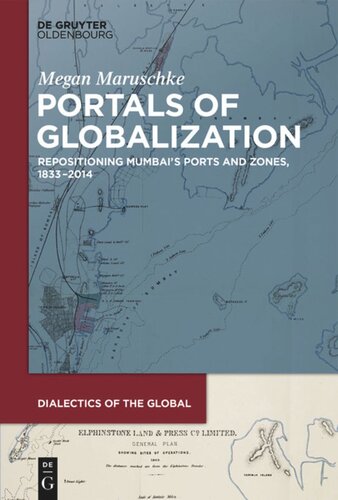

Most ebook files are in PDF format, so you can easily read them using various software such as Foxit Reader or directly on the Google Chrome browser.
Some ebook files are released by publishers in other formats such as .awz, .mobi, .epub, .fb2, etc. You may need to install specific software to read these formats on mobile/PC, such as Calibre.
Please read the tutorial at this link: https://ebookbell.com/faq
We offer FREE conversion to the popular formats you request; however, this may take some time. Therefore, right after payment, please email us, and we will try to provide the service as quickly as possible.
For some exceptional file formats or broken links (if any), please refrain from opening any disputes. Instead, email us first, and we will try to assist within a maximum of 6 hours.
EbookBell Team

4.7
46 reviewsWhile ports are traditionally considered national infrastructure sites that connect states to global markets, special economic zones and past free ports are portrayed as threats to national sovereignty. This book calls these narratives into question as it explores the history of planning Mumbai’s ports and free zones during periods of global and regional transition from the British Raj, to national independence, to economic liberalization. The book opens with a study of an unsuccessful plan hatched by merchants in 1833 to make Bombay a free port to deal with an emerging British India and the advent of free trade. The book ends with how India’s current special economic zones and emphasis on port expansion are part of broader goals to reposition India in transregional Asian trade, to connect Mumbai with northern India, and to enact local plans for a global city that threaten the very port that first connected Mumbai to the world. To understand the functionality of these port and zone projects beyond typical policy prescriptions, this book proposes portals of globalization as a spatial format that fosters processes of reterritorialization.